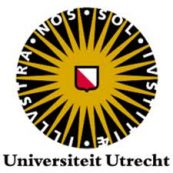 The Dutch Research School of Philosophy (OZSW) and Utrecht University invite PhD candidates and ReMa students in philosophy to register for the course The invention of Greece in 19th and 20th German Philosophy to take place on February 17, 2023.
The Dutch Research School of Philosophy (OZSW) and Utrecht University invite PhD candidates and ReMa students in philosophy to register for the course The invention of Greece in 19th and 20th German Philosophy to take place on February 17, 2023.
Organizing university
Date(s)
Location
Utrecht
Type of activity
Primary target group
Application/registration deadline
The deadline for registration is February 3rd, 2023
About the topic
The use and (abuse) of Ancient Greece, or of an image of Ancient Greece, has played a decisive role in the definition of the European and Western identity. From the 18th to 20th century, most notably in Germany, the idealization of the Greek world generated a polarization between Greece and the Orient, between Athens and Jerusalem. This course will study how these ideas were developed, used and contested in modern intellectual debates. Driving this polarization was the idea that the European tradition, as opposed to other civilizations, is characterized by a distinctive faith in reason. This idealization results from a selective appropriation. For better or for worse, the assumption that the Greek world was the foundation of a rational Europe results from the encounter with Greek philosophers, Plato and Aristotle especially, who argued for the centrality of logos, reason, as distinctive of the human condition. It is debatable, however, whether this is an accurate description of the Greek tradition, as many thinkers and scholars argued during the 19th and 20th centuries. It was not just a matter of erudite interpretation or of scholarly detail, for at stake was the very possibility of making sense of ones’ own time, in a decisive period of the history of Europe. Ancient Greece is a formative fiction, a myth that European modernity tells about itself in the period of colonialism and imperialism. By studying some decisive authors, discussions, and passages the course will put into an historical perspective the rich and complicated role played by the ancient Greeks in the shaping of the European and Western identity.
Aim / objective
This course has both a methodological and a content-related objective. You will gain insight in the methodological issues that are relevant for reconstructing the use of history in the production of an identity perspective. Reception studies and what has been called ‘memory culture’ come together here, and the construction of an image of Greek antiquity that can support the search for a distinctly modern identity clearly is an interdisciplinary endeavour that also involves elaborate media strategies. On the more content-related side, this course will discuss how we can understand and conceptualize the use of the past as contributing to innovative projects in modern philosophy.
Program
17 February 2023
Morning session
h. 10.00-10.30
Welcome
10.30-11.30.
G. Hartung (Wüppertal), The Invention of Greece as the origin of philosophy. Historiography of Philosophy in 19th century Germany
11.30-12.30
J. De Jong (Leiden), “A Star Without Atmosphere”: What Heraclitus Meant to Nietzsche
Afternoon session
h. 14.00-15.00
P. Ziche (Utrecht), Images from Antiquity as Icons of Modernity
h. 15.00-16.00
V. Bos (Nijmegen), Hans Kelsen’s psychoanalytical reading of Plato in its historical context
h. 16.00-16.30
Coffie break
h. 16.30-17.30
M. Bonazzi (Utrecht), A playful life? H. Arendt on the Greeks and politics
Lecturers
The speakers will be:
Mauro Bonazzi (Utrecht)
Vincent van Bos (Nijmegen)
Johan de Jong (Leiden)
Gerald Hartung (Wüppertal)
Paul Ziche (Utrecht)
Abstract submission
n/a
Required preparations
The preparations will consist of readings, assignments, participation and papers.
Papers will be evaluated by prof. Dr. Mauro Bonazzi and Paul Ziche (Utrecht University).
Last updated on September 14, 2022.
Certificate / credit points
For this course participants can earn a certificate after successful completion. Please note, however, that the OZSW is not accredited to reward students with credits/ECTS directly. The study load is mentioned on the certificate, which can usually be exchanged for ‘real’ credits (ECTS) at your home university. For more info please see https://www.ozsw.nl/request-certificate/. The study load for this activity is:
1. Attending the course and writing a short paper (3,000 words, excluding bibliography) after the course (submission deadline: April 25th, 2023): 2,5 EC. Papers are not graded but assessed by the OZSW section committee History of Philosophy as follows: sufficient or insufficient.
2. Active participation, including preparation by reading the assigned literature and participation in the discussions: 1 EC.
Costs
The course is free for:
- PhD candidates who are a member of the OZSW;
- Research Master students who are a member of the OZSW.
- MSc students enrolled in the PSTS master of the University of Twente;
- Members of another research school in Humanities (LOGOS)
Other participants pay a tuition fee of 300 euro for the course.
How to apply / register
You can register for the course through this registration form. Registration closes February 3rd, 2023
If registration has been closed because the maximum amount of participants has been reached, you can submit your name to the waiting list by sending an email to assistant.director@ozsw.nl. Please also indicate whether you are a ReMa student or PhD candidate and whether you are a member of the OZSW or not.
Cancellation and registration policy
Organizers
Mauro Bonazzi, Utrecht University, m.bonazzi@uu.nl
Paul Ziche, Utrecht University, p.g.ziche@uu.nl